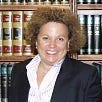Net Neutrality: The Next RoundNet Neutrality: The Next Round
Attorneys for Verizon and the FCC squared off in court to argue the basic issues of Internet regulation.
September 16, 2013

Attorneys for Verizon and the FCC squared off in court to argue the basic issues of Internet regulation.
On Monday, September 9, long-time litigants Verizon (among others) and the Federal Communications Commission met for another round in the dispute over the long running battle known as "Net Neutrality." The two key questions at the root of the ongoing saga are whether providers of Internet services can discriminate between those customers that they serve, and whether the FCC--or any entity for that matter--has the legal authority to regulate the Internet. The sides are predictable...Verizon, Comcast, Time Warner and AT&T (among others) are poised against organizations whose mission is consumer protection-based.
Whatever the verdict in the current case, the matter is likely to make its way to the Supreme Court before the issue is put to bed. But even if the courts determine that the FCC does have the authority to regulate the Internet, the subsequent question is whether the regulation(s) that exist are appropriate/capable/consistent (choose one or all). Given the rapid evolution of technology and the blurring of the lines between different communications services (read: voice, data and video) that used to be technically discrete and now look alike, what role should the FCC have?
FCC Open Internet Order, 2010
The foundation for the current litigation is the FCC's Open Internet Order issued in December 2010. The challenge faced by the regulators at the time of the order's drafting was to attempt to balance open and unfettered access to the Internet by all consumers with the needs and interests of the providers of Internet service. Like the result of any good compromise, neither side was particularly happy with the end result, thus leading to the current litigation.
As a side note, in its initial stab at creating a regulatory framework, the FCC opted to treat wireless and wireline services differently. Specifically, because of a greater risk of congestion in wireless networks, wireless providers have been deemed to require greater flexibility than their wired brethren in order to manage their respective networks' service offerings. As such, wireless providers have been regulated with a much lighter touch than regulating wireline providers.
In the 2010 order, wireless companies were prohibited from blocking Internet voice services (VoIP and any other voice services that directly compete with the wireless provider's voice services), although they have been--and remain--able to block access to other applications. After all, wireless spectrum is a limited commodity, and as increasing numbers of people pump increasing amounts of information over such networks, the issue of congestion has continued to create challenges in communication for both transmitters and receivers).
The FCC's 2010 order created three rules to ensure open access to the Internet: transparency, no blocking and no unreasonable discrimination. Specifically, transparency has required that entities providing broadband Internet access be obligated to disclose accurate and current information regarding network practices, performance and commercial terms of service.
The "no blocking" rule contains separate provisions for wireless and wireline providers. Wireline providers have been prohibited from blocking any "lawful content, applications, services or non-harmful devices, subject to reasonable network management." On the wireless side, "no blocking" has also included a provision that forbids the blocking of "applications that compete with the provider's voice or video telephony services, subject to reasonable network [management]." This means that wireless providers have not been able to block calls from VoIP or other non-traditional formats (though, as noted above, they can block non-voice applications).
Last among these three initial rules is one that requires "no unreasonable discrimination." This rule, which has applied to wireline service providers only, demands that fixed broadband providers "cannot unreasonably discriminate in transmitting lawful network traffic over a consumer's broadband Internet access service."
The Issues, 2013 Edition
Last week, before a 3-judge panel, Verizon argued first for the ability to "manage its own pipes." Verizon's team, on its own behalf and those of its behemoth brethren, believes, and not without good reason, that as the one(s) making the largest investment, they have the right to a return, for both themselves and their shareholders. As the entity that bears the burden and risk of building the network, Verizon believes that it's entitled to a fair return. On the other hand, the attorneys representing the FCC argued that those who create legal content (as opposed to illegal) must have equal access to Internet users--be they the biggest guns or the smallest.
As a second issue, Verizon has long argued that the FCC does not have the authority to regulate the Internet at all. This position stems from the FCC's 2002 determination that the Internet is an "information service" subject to much less onerous regulation than it would be if it was classified as a "telecommunications service." According to the New York Times, arguing on behalf of Verizon, attorney Helgi C. Walker of Wiley Rein in Washington argued that Congress never intended that the FCC have the authority to regulate the Internet. Verizon's position has long been that without substantial reward for its investment, it, along with the other carriers, has no incentive to innovate and bring new technologies and efficiencies to market, since it will be denied the benefit of its efforts.
On the other side, arguing for the FCC, attorney Sean A. Lev told the judges that the FCC's authority to regulate the Internet is derived from numerous parts of the Telecommunications Act of 1996. This particularly includes a provision that gives the FCC not the right--but the duty--to work to expand broadband access. According to the New York Times, "Companies that have equal access to consumers are [equally] encouraged to innovate, Mr. Lev said, adding that [Network Neutrality] it w[ill] result in more vibrant start-ups and a growth in demand for Internet service."
While the decision is expected to be four months away (January 2014), last week's oral arguments lasted 3 times longer than scheduled. The read on this factoid is that the 3 judge panel was paying very careful attention. As I find myself saying too often, "stay tuned."





